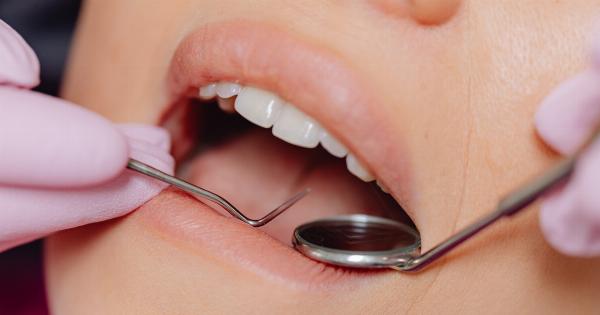Teeth sensitivity is a common dental issue, affecting millions of people across the world. It is characterized by a sharp pain or discomfort that arises when teeth are exposed to certain stimuli such as cold, hot, sweet, acidic, or pressure.
The pain can be fleeting or persistent, and it can range from mild to severe. Teeth sensitivity can make it difficult to eat, drink, and carry out routine dental care. If ignored, it can lead to other dental problems such as cavities, gum disease, and enamel erosion.
Understanding what causes teeth sensitivity can help you prevent and manage it effectively. In this article, we discuss various factors that contribute to teeth sensitivity.
1. Enamel wear
The enamel is the outermost layer of the teeth that protects the underlying dentin and pulp.
It is the hardest part of the body, but it can still wear down with time due to various reasons such as acidic foods and drinks, teeth grinding, and aggressive brushing. When the enamel wears down, it exposes the dentin that contains microscopic tubules that lead to the nerve endings of the teeth. This exposure can result in teeth sensitivity to hot, cold, and sweet sensations.
2. Gum recession
The gums cover the roots of the teeth and provide a protective barrier against injury and bacterial invasion. However, gum disease, aggressive brushing, genetics, and aging can cause the gums to recede, leaving the roots exposed.
This exposes the dentin that is sensitive to various stimuli, leading to teeth sensitivity.
3. Tooth decay
Untreated tooth decay can cause the enamel to wear down and expose the dentin. This can lead to teeth sensitivity, especially to sweet foods and drinks.
4. Dental procedures
Dental procedures such as tooth whitening, fillings, crowns, and root canal treatment can cause temporary teeth sensitivity. This is because the procedures involve removing or exposing parts of the teeth that are sensitive to various stimuli.
The sensitivity usually subsides after a few days or weeks.
5. Teeth grinding
Teeth grinding, also known as bruxism, is a common condition that affects people of all ages. It involves clenching and grinding the teeth involuntarily, especially at night.
Teeth grinding can wear down the enamel, expose the dentin, and lead to teeth sensitivity.
6. Acidic foods and drinks
Consuming acidic foods and drinks such as citrus fruits, soda, and vinegar can erode the enamel and expose the dentin. This can lead to teeth sensitivity to hot, cold, and sweet sensations.
7. Plaque buildup
Plaque is a sticky film of bacteria that forms on the teeth and gums. If left untreated, it can harden into tartar, leading to gum disease, tooth decay, and teeth sensitivity. Plaque buildup can also cause the gums to recede, exposing the dentin.
8. Genetics
Some people may be more prone to teeth sensitivity due to genetic factors that affect the thickness and quality of the enamel.
It is important to speak to your dentist about your family history and take preventive measures if you are at a higher risk of teeth sensitivity.
9. Age
As we age, the enamel naturally wears down, leading to teeth sensitivity. The gums also tend to recede with age, exposing the dentin. It is important to take extra care of your teeth as you grow older to prevent and manage teeth sensitivity.
10. Dental hygiene habits
Poor dental hygiene habits such as infrequent brushing, incorrect brushing techniques, and not flossing can lead to plaque buildup, gum disease, and teeth sensitivity.
It is crucial to maintain good dental hygiene habits to prevent and manage teeth sensitivity.
Conclusion
Teeth sensitivity can be caused by various factors such as enamel wear, gum recession, tooth decay, dental procedures, teeth grinding, acidic foods and drinks, plaque buildup, genetics, age, and dental hygiene habits.
If you experience teeth sensitivity, it is important to speak to your dentist to determine the underlying cause and take appropriate preventive or treatment measures. Taking care of your teeth and maintaining good dental hygiene habits can prevent and manage teeth sensitivity.




























